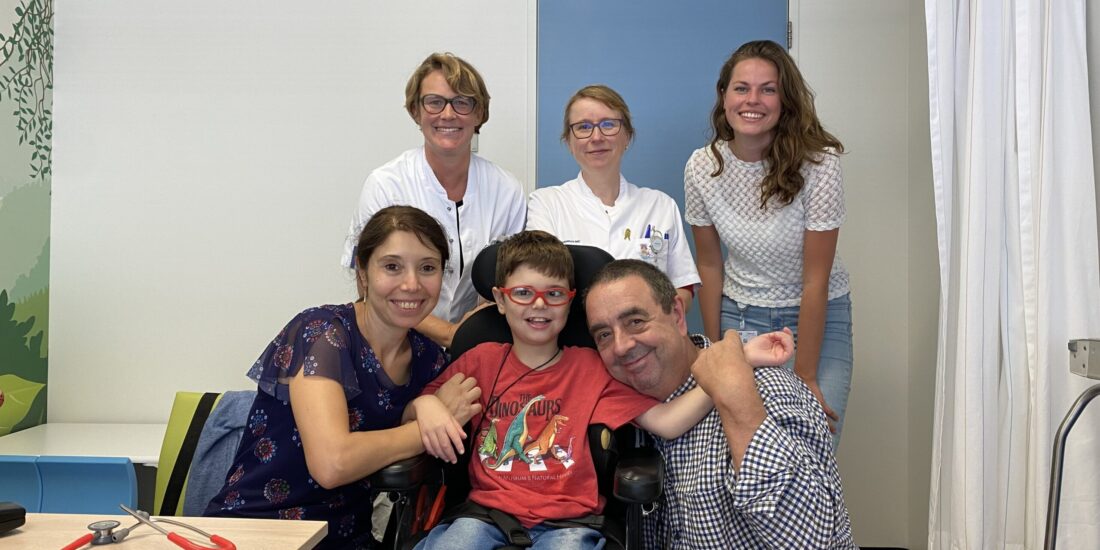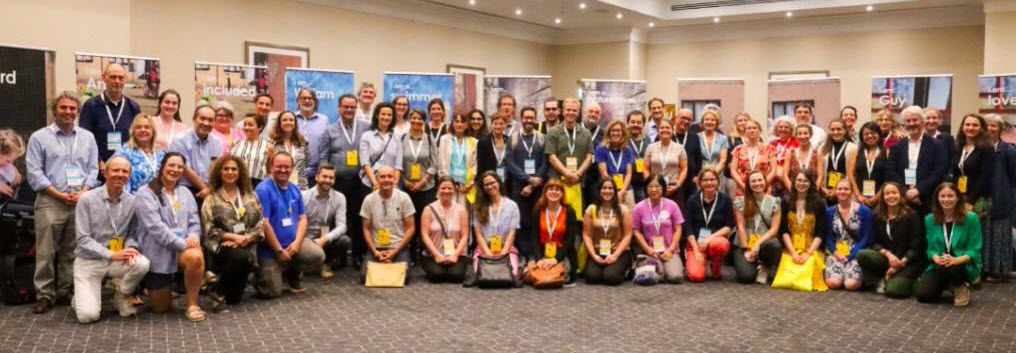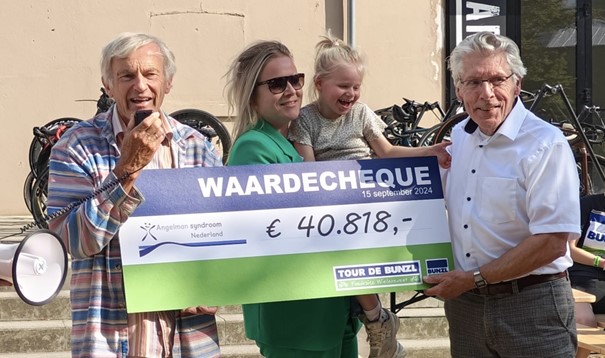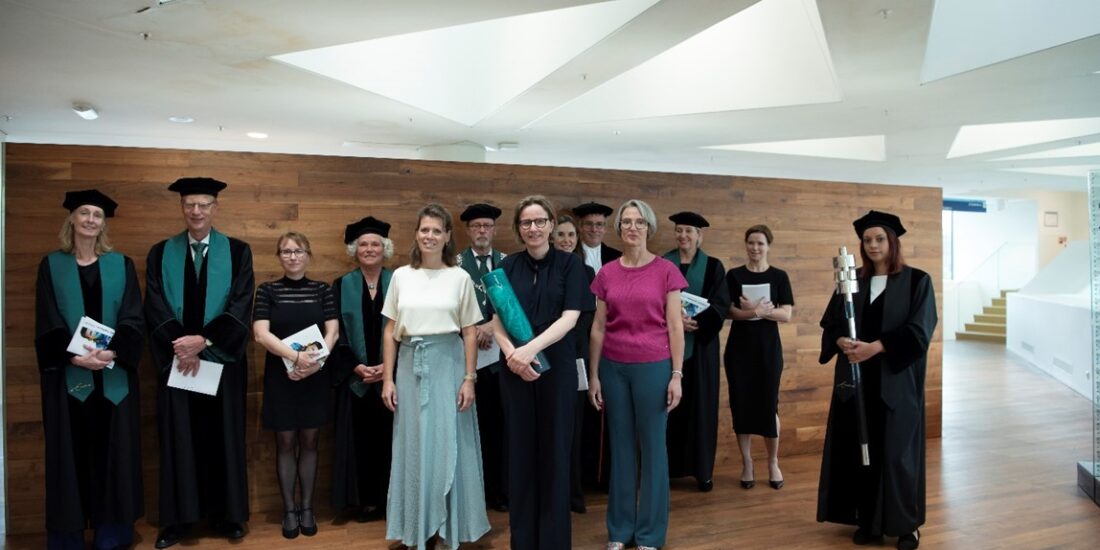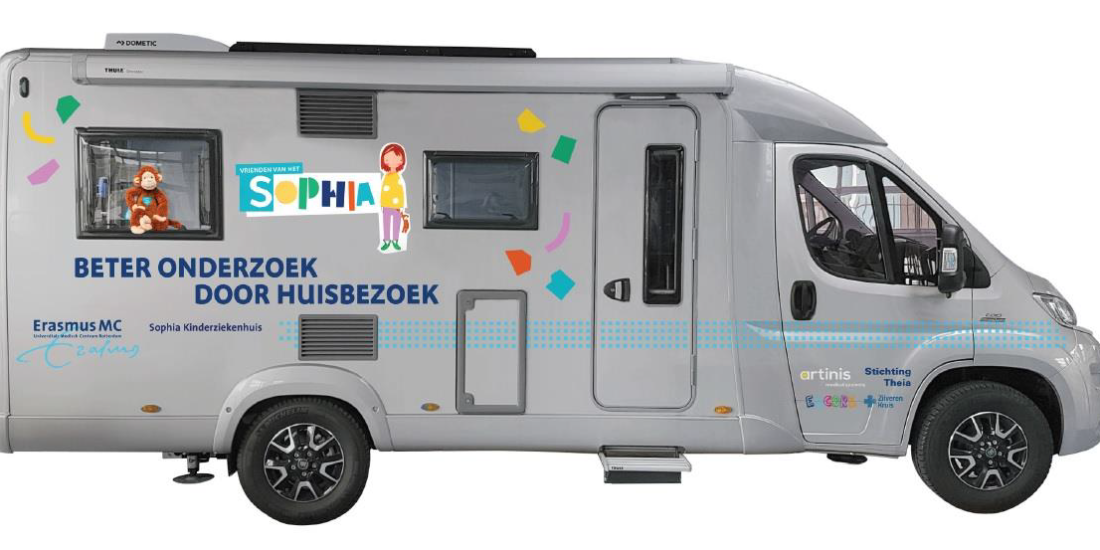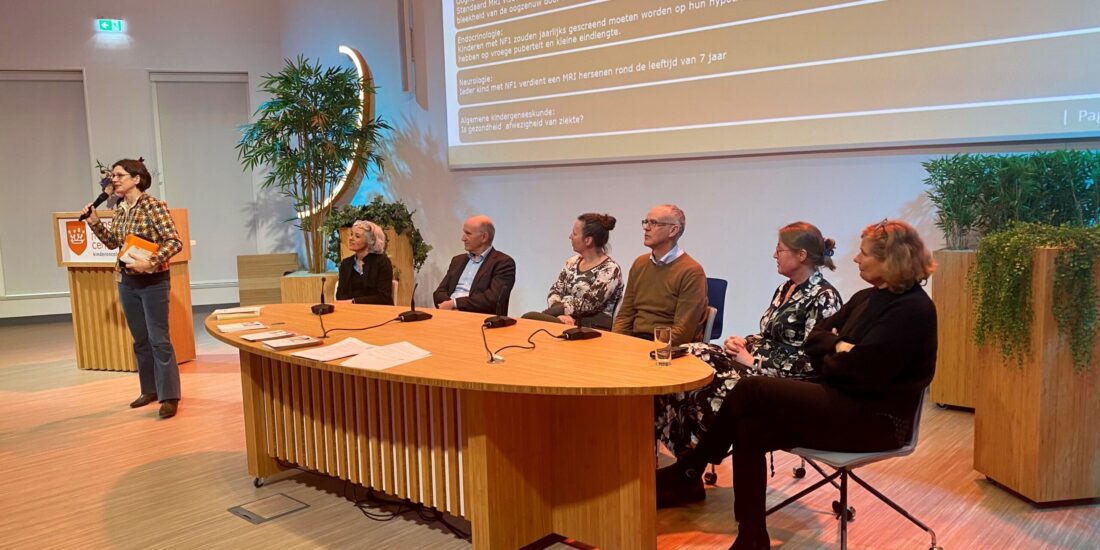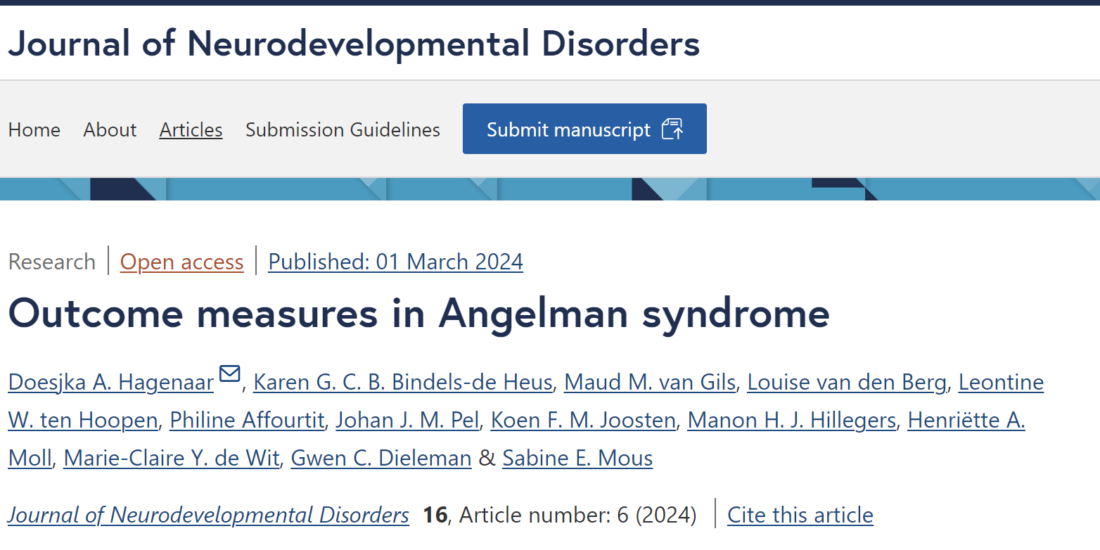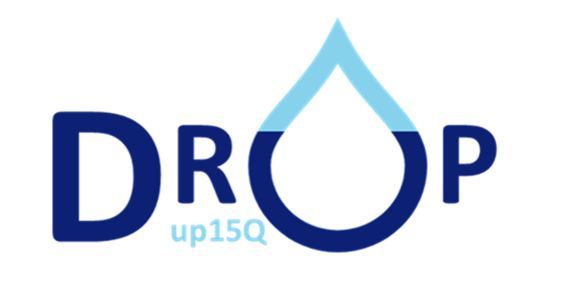The CAMK2 Outcome Measures Study has officially started!
The CAMK2 Outcome Measures Study has officially started!
This month, the first two CAMK2 families traveled all the way from Italy to the Erasmus MC to participate in our efforts to identify feasible outcome measures for future intervention trials.
As a proof-of-concept, we are focusing on patients with two specific gain-of-function mutations in the CAMK2A and beta isoform. During their stay, the families visited our Child Brain Lab and were seen by our multi-disciplinary CAMK2 expert team which consists of a child psychiatry team, speech-language therapist, physical therapists, pediatric neurologist, and developmental & genetic pediatrician.
We are grateful to the families for participating in this study and look forward to meeting more members of the CAMK2 community in the coming years.
This project is funded by the Dutch Brain Foundation.
Aware of patients with a CAMK2B (Pro139Leu) or CAMK2A (Thr286XX) disorder? Please contact our team: camk2disorders@erasmusmc.nl.
ASA conference Coventry 2024
On August 1 and 2, 2024, several members of the ENCORE Expertise Center for AS attended the ASA Scientific Conference, this time held in Coventry, UK.
It was an inspiring meeting with reunions of familiar faces and interesting presentations. Edwin Mientjes, Doesjka Hagenaar, Karen Bindels-de Heus and Marie-Claire de Wit also gave a presentation on their research. Karen was surprised by the ASA board with a Certificate of Gratitude for her recent promotion. We also had a useful meeting with our partners from the growing European network for AS.
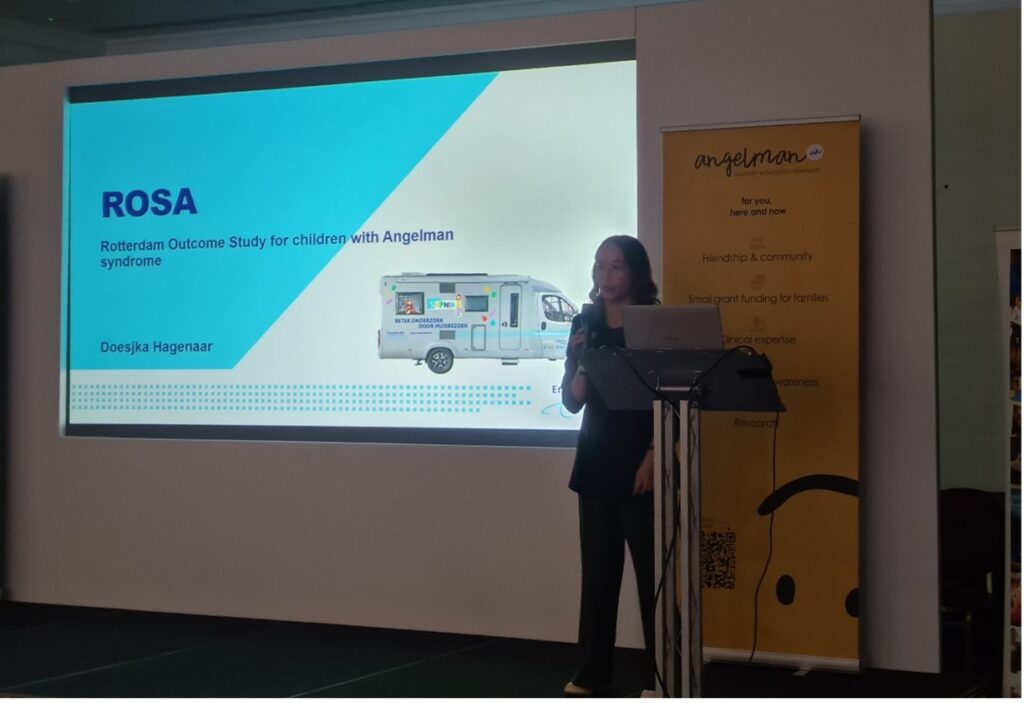
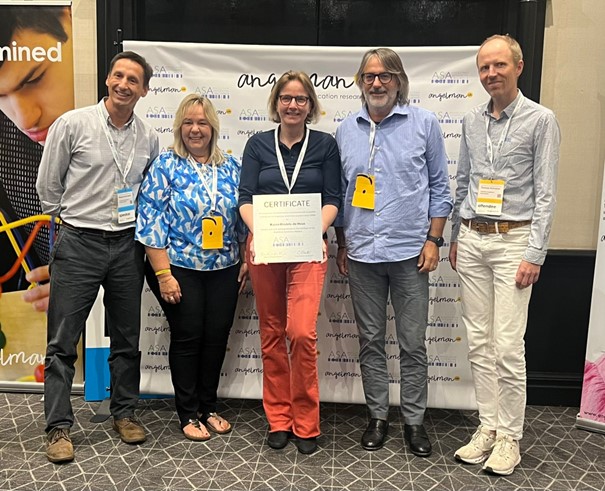
Tour de Bunzl cycles for the Angelman Association
On September 15, 2024, a huge amount of money was raised for the Angelman association during the Tour de Bunzl: €40,818!
Bunzl Nederland organizes this annual cycling tour through the hills of Valkenburg. A group of employees of one of the Bunzl companies cycle along. The sponsored money is generated by various suppliers who donate a lot of money to a good cause. This year, the Angelman Syndrome was chosen. The colleagues of Angel Saar's mother, who works at King - Bunzl in Tiel, also participated this year for this fantastic cause. At the end of the ride, the check was presented to the association under the watchful eye of the chairman, the treasurer, Angel Saar and Saar's mother.
Hora est! Promotion Karen Bindels-de Heus
On July 3, 2024, pediatrician-EAA Karen Bindels-de Heus successfully defended her thesis “Angelman Syndrome in Children”.
In several studies she investigated the natural course of Angelman Syndrome (AS) in children with specific attention to development, epilepsy, sleep, eating behavior, growth, puberty, bone quality of children and quality of life of parents. She and her team also conducted a study on the effect of behavioral treatment of sleep problems in children. Finally, she described which new tests for neurocognitive functioning and growth are and are not feasible in children with AS. She especially thanked all children with AS and their parents for their trust in the ENCORE Expertise Center and sharing their knowledge and experience!
You can access her dissertation at Angelman Syndrome in Children (ogc.nl). If you are interested in a paper version of the dissertation, please contact us at angelman@erasmusmc.nl
It was a great day for the ENCORE Expertise Center for AS!
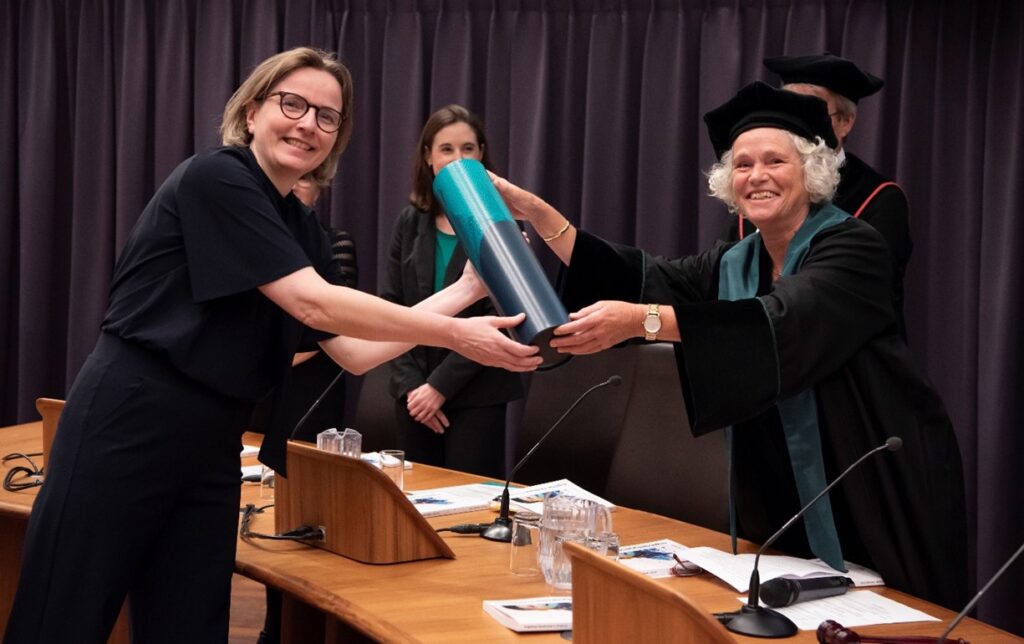
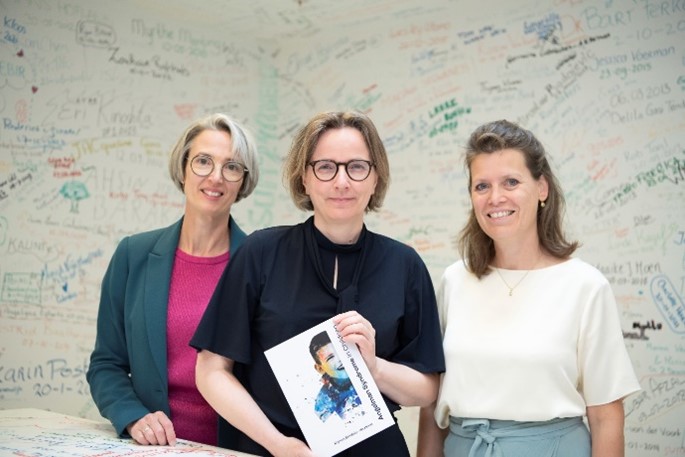
FACE-NF1 – ‘MultiFACEt’ approach to predict NF1 development – launches with funding from LetsbeatNF
The complex course of NF1 unraveled from different perspectives. Using clinical data, hereditary factors and biomarkers, we develop a personal risk profile for people with NF1-related plexiform neurofibromas for tailor-made treatment advice.
With a combination of clinical, genetic and biological information, we predict how benign and malignant tumors develop in people with NF1. This helps to improve treatments and follow-up in the future. The strength of the research lies in setting up a national system where all information about NF1 patients will be entered and stored (a database), including the storage of tissue material, which will be secured after an intervention or operation (a biobank).
We are still looking for a PhD candidate on this project. Check the vacancy page for more information.
Principal investigators: Rianne Oostenbrink/Walter Taal
The Sophia bus on RTV Rijnmond!
On Friday 15 March, RTV Rijnmond joined Sabine Mous and Kamil Hiralal in the Sophia bus to see how we use it for research. The Sophia bus is an initiative from ENCORE scientists with the aim of reducing the pressure to participate in research.
Continue ReadingThe national networking day NF1 expertise network
The national network day NF1 expertise network took place on March 18 with the theme: Multidisciplinary network care for NF1.
Continue ReadingThe ROSA research has been published. To all participants, thank you very much!
Doesjka Hagenaar's research on the ROSA research has been published. We are pleased that everyone can now read it and would especially like to thank all participants. Doesjka's research focuses on finding suitable ways to measure the functioning of people with Angelman syndrome, with the aim of better measuring whether treatments work. If you would like to read the full publication, click here.
Background
Angelman syndrome (AS) is a rare neurological disorder characterized by intellectual disability, little to no expressive speech, visual and motor problems, behavioral problems, and a tendency to overeat and weight gain. The characteristics of AS make it difficult to measure the functioning of these children with standard clinical tests. Achievable outcome measures are needed to measure current functioning and change over time, both in clinical practice and clinical trials.
Goal
Our first goal is to assess the feasibility of different functional tests. We focus on the domain of neurocognitive functions and physical growth using the following measurement methods: eye-tracking, functional Near-Infrared Spectroscopy (fNIRS), indirect calorimetry, bioimpedance analysis (BIA), and BOD POD (air displacement plethysmography). Our second goal is to explore the results of the above measurements to better understand the AS phenotype.
Methods
The study population consisted of 28 children with AS aged 2-18 years. We defined an outcome measure as feasible when (1) at least 70% of participants successfully completed the measure and (2) at least 60% of those participants had acceptable data quality. Modifications to the testing procedure and reasons for early termination were noted. Parents rated feasibility and importance and were invited to make recommendations to increase feasibility. The results of the measurements were explored.
Results
Outcome measures obtained with eye-tracking and BOD POD met the definition of feasibility, while fNIRS, indirect calorimetry and BIA did not. The main reasons for early termination of measurements were signs of protest, inability to sit still and poor/no calibration (specifically for eye tracking). Post-calibration was often applied to obtain valid eye-tracking results. Parents rated the BOD POD as most acceptable and fNIRS as least acceptable for their child. All outcome measures were assessed as important. Exploratory results showed longer reaction times to highly salient visual stimuli (eye-tracking) as well as high body fat percentage (BOD POD).
Conclusions
Eye tracking and BOD POD are feasible measurement methods for children with AS. Eye tracking was successfully used to assess visual orientation functions in the current study and (with some practical modifications) can potentially be used to assess other outcomes as well. BOD POD was successfully used to investigate body composition.
WANTED! Student for designing information material about sleep problems in children with Angelman syndrome.
Wat zoeken we: we weten wat we willen vertellen, maar vormgeven kunnen we niet. We zoeken een student die met ons samen hieraan wil werken en die is staat is om deze video’s van een grafische vormgeving te voorzien. We denken bijvoorbeeld aan een geanimeerde infographic/tekeningen. We willen bewust geen filmpje van een echt kind, omdat we denken dat dat het voor ouders minder makkelijk maakt om hun eigen situatie op de informatie te projecteren.
Continue ReadingDRUP study has started! Patients with Dup15q wanted.
We invite parents of children with Dup15q syndrome to participate in an important study aimed at identifying the signs and symptoms of this genetic disorder in the Netherlands.
Continue Reading
